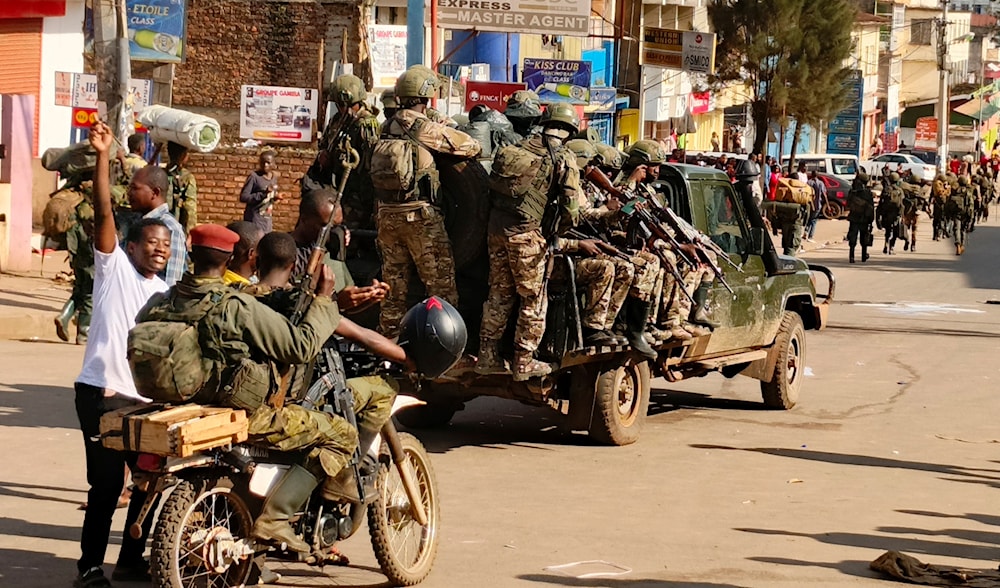DRC and M23 resume peace talks in Doha
The Democratic Republic of Congo and M23 have restarted peace talks in Doha under Qatari mediation, as violence persists in eastern Congo and disputes over ceasefire monitoring and prisoner exchanges remain unresolved.
-

M23 rebels enter the centre of east Congo's second-largest city, Bukavu, and take control of the South Kivu province administrative office, Sunday, Feb 16, 2025 (AP Photo/Janvier Barhahiga, file)
The Democratic Republic of Congo (DRC) and the M23 armed movement have resumed peace talks in Doha, Qatar confirmed on Tuesday, following renewed violence in the country’s troubled east.
Qatari Foreign Ministry spokesman Majed al-Ansari announced that delegations from both Kinshasa and M23 were in Doha to continue discussions on the implementation of a July ceasefire agreement.
The deal, which aimed to end years of conflict in the mineral-rich eastern provinces, had set August deadlines for formal negotiations and a final agreement, but both lapsed without progress.
According to al-Ansari, the current discussions focus on “a mechanism for monitoring the ceasefire, alongside the exchange of prisoners and detainees,” with coordination involving the United States and the International Committee of the Red Cross.
Challenges to peace implementation
Despite international efforts, previous ceasefires in eastern Congo have collapsed. Human Rights Watch recently documented mass killings by M23 near Virunga National Park in July, raising concerns about ethnically targeted violence.
Current talks face multiple obstacles, as M23 demands the release of over 700 prisoners, while Kinshasa insists on case-by-case amnesties. The rebels also refuse to withdraw from captured territory without guarantees on political and security reforms. Both sides continue to accuse each other of violating the ceasefire through artillery and drone strikes.
While the Doha process reflects unprecedented international coordination, with Qatar and the US playing leading mediation roles, the path toward lasting peace remains uncertain.
Rwanda’s alleged role
Neighboring Rwanda has long denied providing military support to M23, but UN experts report overwhelming evidence of Kigali’s involvement, including direct troop deployments and supply of advanced weaponry.
Regional mediation efforts have struggled. Angola’s Luanda Process collapsed earlier this year, and South African-led peacekeeping forces faced heavy losses before announcing withdrawal.
In June, Washington brokered a separate agreement between the DRC and Rwanda that committed both sides to halt support for armed groups and coordinate security efforts. However, M23 was not part of that deal, prompting its insistence on direct talks with Kinshasa in Doha.
The battle over Congo’s minerals
Eastern Congo holds an estimated $24 trillion in untapped mineral wealth, including coltan, cobalt, and gold, resources critical to global technology supply chains. M23 reportedly earns nearly $1 million monthly from taxing mines in areas under its control. The group’s capture of Rubaya, one of the world’s largest coltan deposits, underscored the economic stakes driving the conflict.
Some analysts argue that Rwanda also benefits from the illicit mineral trade, with significant volumes of Congolese coltan smuggled across the border and entering international markets through Kigali.

 3 Min Read
3 Min Read








